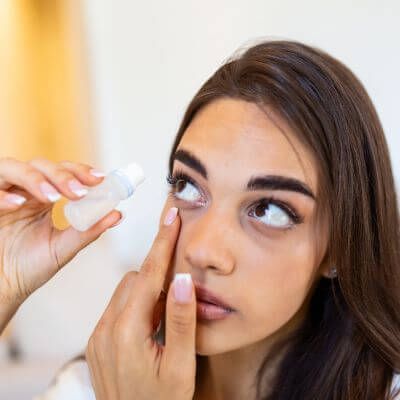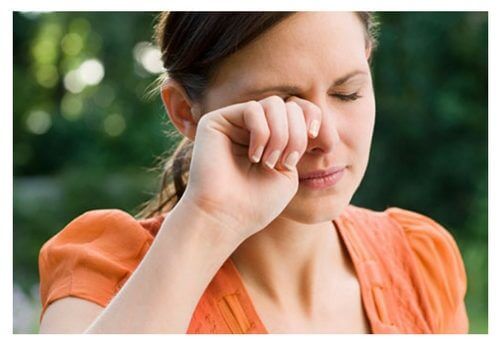UV Safety Month 2020: Fun in the Sun While Protecting Your Vision
Everyone here at Baptist Eye Surgeons wants you to have the best summer possible. Whether it’s grilling, going on vacation, or simply spending as much time outside as possible, we want you to be making smart choices about your vision while having fun in the sun.
That’s why we are so passionate about UV Safety Month. To have the best summer ever, you need to understand how easy preventing UV damage to your eyes is, how to choose the best sunglasses, and know the dangerous effects of UV radiation.
We will take a look at:
- Why we observe UV Safety Month
- Choosing the right UV protection for your eyes
- The dangers of UV radiation
UV Safety month is a great way to educate yourself about the dangers of UV radiation while safely soaking up the sun. A little protection goes a long way in ensuring healthy eyes and vision for many summers to come!
Why We Observe UV Safety Month
UV exposure is an important part of being healthy. For instance, regular exposure to UV rays will help you sleep better , which is especially useful as we age and are more susceptible to insomnia. This is thanks to our eyes containing light-sensitive cells that help regulate our natural sleep cycle. They basically act as our own biological alarm clock.
Another important role UV exposure plays is in preventing nearsightedness in children. Getting your kids outside is a wonderful way to protect their vision, get them out from in front of electronic screens, as well as teach them about eye health. None of these benefits of UV radiation even touch on how our planet could not support life without UV radiation.
But chances are that’s not what you hear when people are talking about UV radiation, and for good reason. UV rays are directly related to certain types of cancer, vision loss, and premature aging. UV rays don’t have to come from the sun to cause damage, either. Artificial UV radiation poses an equal if not greater due to people being less concerned about it.
Fortunately, avoiding UV damage to your vision is relatively easy to do. Like sunblock for your skin, wearing the right eye protection early and often is the best way to protect your eyes and vision from the sun’s harmful rays. Not only will a quality pair of sunglasses make it easier to be outside in the summer, but they will protect your eyes and vision all year long!
Choosing the Right UV Protection for Your Eyes
When it comes to protecting your vision from the sun’s rays, nothing works better than a pair of UV protection safety glasses . However, not all sunglasses are created equal. Some sunglasses offer genuine UV protection while others are nothing more than fashion accessories. Keep reading to learn how to choose the best sunglasses that will give you the best UV protection.
UV Absorption
Many people think that polarized lenses and UV absorption are the same, but that is not the case. Polarized lenses are designed to minimize reflected glare. Unfortunately, they don’t offer much in the way of UV absorption. For maximum UV protection, choose sunglasses labeled as having 99% – 100% UV protection, or that say “up to 400nm,” which is 100% absorption.
Frame Fit
The fit of your frames is extremely important for UV protection. Poorly fitting frames can allow the sun’s rays to reach your eyes regardless of how much UV absorption they offer. Choose sunglasses that:
- Fit closely against your face
- Don’t touch your eyelashes
- Are even with your brow
Wrap-around style sunglasses are your best bet since they protect your eyes at every angle. Not only do they offer maximum UV protection, but they help protect your eyes from allergens like pollen, as well!
Lens Durability
Sunglass lenses can be made from materials including plastic, polycarbonate plastic, and shatterproof glass. You’ll most likely be wearing them outside, so we recommend plastic lenses over regular glass, which are much more fragile.
Polycarbonate plastic is much more durable if you’re physically active, but they also scratch easily. Opt for a pair with a scratch-resistant coating if you choose this option.
Lens Quality
You may not think about the quality of your lenses often, but this can be a major mistake since low-quality lenses can impede your vision. To test lens quality:
- Look at a rectangular object such as a floor tile
- Cover one eye and hold the glasses away from your face at a comfortable distance
- Move the glasses horizontally and vertically
Pay special attention to the lines of the object you are looking at. If the lines stay straight then they are a quality pair of lenses. If they become squiggly or deformed then find another pair.
Finding the perfect pair of sunglasses can be time-consuming. On the bright side, taking the extra time looking for these features will guarantee a quality pair of sunglasses that will keep your eyes safe and healthy.
The Dangers of UV Radiation
The dangers of UV radiation make sun safety extremely important. The sun can damage your eyes in multiple ways, including general discomfort, eye growths, and even eye cancer. Many people don’t take these threats seriously or are simply unaware of them since they don’t experience symptoms immediately. That’s why it’s essential to develop good eye habits early.
Cataracts
Cataracts are the leading cause of blindness worldwide. They result in a clouding of your eye’s lens which reduces your vision. While cataracts occur with varying severity depending on the individual, their effects can be amplified by UV radiation. This can lead to developing cataracts sooner or even experiencing severe vision loss much earlier than normal.
Photokeratitis
Photokeratitis, also known as corneal sunburn , occurs when the tissue on your eye has become inflamed. Eye tissue is extremely sensitive and it doesn’t take long for UV radiation to damage it. It’s important to understand that photokeratitis can happen at any time of year. Those who spend a lot of time near reflective surfaces like snow and bodies of water are especially at risk.
Macular Degeneration
Located on the retina , the macula helps deliver nerve signals to the brain in order to produce the images we see. The macula is essential to this process since it makes our vision more clear and detailed. Like cataracts, UV radiation harms the macula by speeding up the degenerative process. The end result is blurred vision when looking directly at an object.
Pterygium & Pinguecula
Pterygium is a growth on the eye that is the result of prolonged UV exposure. They occur on the conjunctiva which lays over the front of your eyes and inside of your eyelids. While usually a cosmetic problem, a pterygium can stretch out and over the cornea, which can result in vision loss.
Like pterygium, a pinguecula is a growth affecting the conjunctiva of your eye. Unlike a pterygium, a pinguecula is a raised area inside the conjunctiva. They’re often described as a bump on the eyeball and tend to be yellow or white in color. Pingueculas are most common in areas with lots of dust and sand. Luckily, they are easily treated with eye drops.
This list is not an exhaustive one. However, it does show how natural and artificial UV radiation can damage your eyes and vision over time. Spending time outside having fun in the sun is still an important part of your overall health. That’s why we are so passionate about UV Safety Month 2020. By understanding these sun safety facts, you stand a greater chance of having many years of healthy vision to come while enjoying time outside!
Final Thoughts
UV Safety Month is all about balancing the fun of summer with UV safety. While it has its benefits, UV rays are also hazardous to your eyes and vision. The best thing you can do is buy a quality pair of sunglasses with UV absorption, frames that fit, with high-quality, durable lenses. They are your best defense against the effects of damaging UV rays while enjoying your summer.
Baptist Eye Surgeons is an ophthalmological practice in Knoxville, TN, and Morristown, TN. Visit our website to meet our doctors and learn more about our specialties, or give us a call at 865-579-3920 for more information or to schedule an appointment .


MORRISTOWN
SEVIERVILLE
TENNESSEE VALLEY - LASER CENTER
TENNESSEE VALLEY - EYE CENTER



